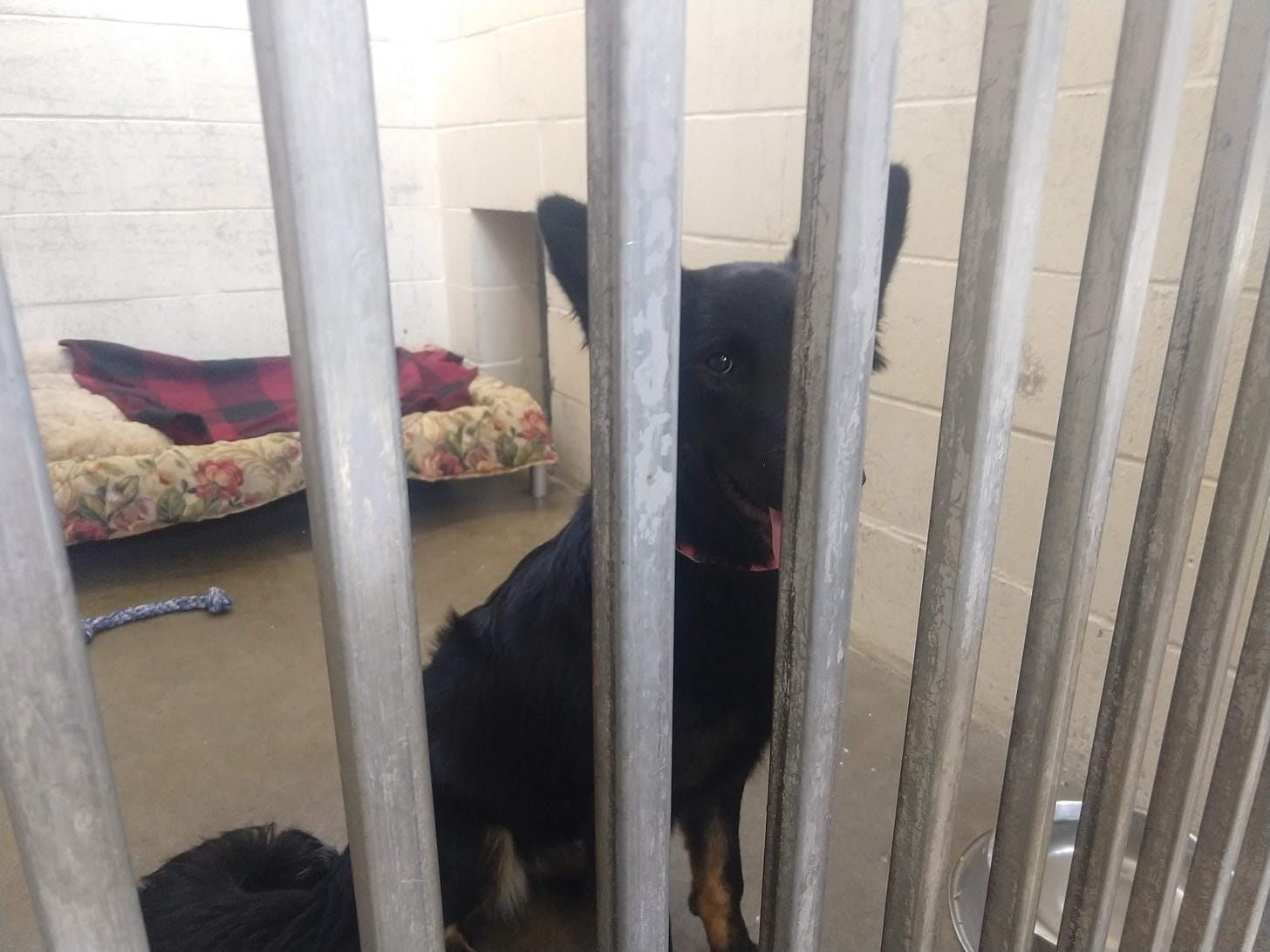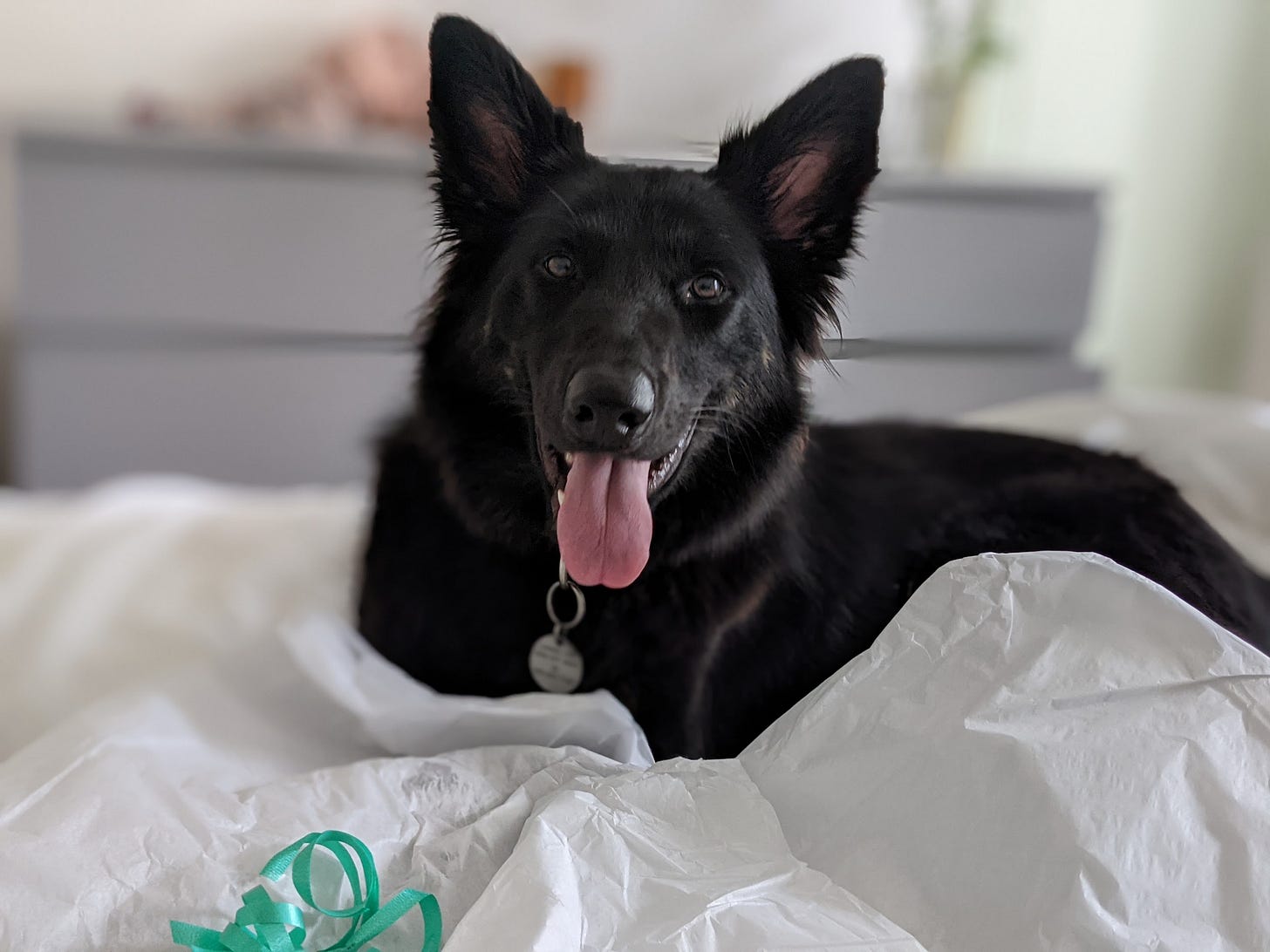Heroes: Exploring humanity through dog training.
For a significant part of my life, the idea of a personal hero was something that felt really alien to me. I experienced disillusionment with adults early and often during my childhood, and I think that contributed to cynicism towards the idea of having a hero as an adult. I don’t trust the mythos and adoration that forms around heroic figures. I feel that it is more likely to be a trick of perception that will not hold up to scrutiny; that all people are doing their best in their own, flawed ways, so it doesn’t really make sense to elevate some above others.
Some time ago my feelings about having heroes changed, and I can now sincerely say that I have personal heroes. But before we get there, I think we need to establish some context.
About 3 years ago my wife and I went to the local shelter and fell in love with our dog, Zoey.


Zoey is (we think) a German Shepherd / Border Collie mix. We adopted her when she was approximately 9 months old.
Dogs have extremely different personalities, and the experience of having a dog in your life will be extremely different depending on what kind of dog it is. Partially, that is driven by their genetics, and partially by their previous experiences. In Zoey’s case, it seemed that both conspired to make her a pretty difficult animal to manage.
When we adopted her, Zoey had confidence issues, leash aggression, separation anxiety and some destructive behaviors. She is a very “chatty” pup, which means that she barks in any and all situations. Being a mix of two working breeds, she has boundless energy and requires a ton of exercise.
She was the first dog for both myself and my wife, and needless to say, it was a struggle. We attended 3 “feisty fido” classes. I’ve read probably a dozen books on dog training. We had 1:1 consultations with several behaviorists. Over the past 3 years, my wife and I grew as dog parents, and Zoey grew too, and I’m happy to say that she is a happy 3.5-year-old pup and coexisting is now a (relatively) stress-free experience.

Being a dog owner can sometimes be really frustrating. I imagine being a parent is probably similar. Many dog owners don’t know even the basics of how to communicate with their animals. And unfortunately, it’s common to see people resort to force, intimidation and pain to get their dogs to do what they want.
At the same time, the process of learning about training dogs has exposed me to the most incredible people. My entry-point to this world was Hannah Branigan, who is a self-proclaimed training nerd, and the host of the podcast Drinking from the Toilet.
Most of the podcast is quite nerdy, and goes into the details of animal behavior and dog training, but I think there are a couple of episodes that everyone should listen to:
One of the episodes is Force Lite with Shade Whitesel.
The idea of “force lite” is a powerful one, and it really brings into focus how natural it is for people to get frustrated, and to unconsciously slip into intimidation and coercion in our daily interactions with dogs and other humans. One might raise their voice, make a face, pull the leash tighter or “lean into” their dog to express their frustration. Hannah and her guests work towards noticing their own emotions and behaviors to be intentional about what they communicate to their animals.
The other episode is Treat Everyone Like a Dog with Karen London. You may also consider reading the book.
An idea that is present throughout the podcast is that the behavior-reward cycles that make dog training work are also at play with us, humans. For example, suppose Zoey is not listening to me, but she looks at me and runs over when I raise my voice and jump around. The fact that she did what I wanted is really rewarding to me, and it makes it more likely that I will jump and raise my voice again in the future. I’m learning that my behavior (shouting and jumping) is effective in getting my reward (feeling like I can get my dog’s attention).
So just like we train our dogs, our dogs (and our human partners, and friends, and family) are also constantly training us. Humans, just like dogs, can get into undesirable reinforcement loops that create bad habits.
I think this understanding lays the foundation for empathy. The dog is barking at the mailman because the mailman is scary, and he usually goes away after the dog barks for a while. The human is yelling at their dog because in the past, raising their voice distracted the dog from eating a grimy bird carcass.
Hannah and her guests exercise this empathy towards their animals, and extend that empathy towards other dog trainers and themselves. It’s a really powerful world-view, and the diligence and skill with which they apply it is genuinely inspiring. It wasn’t long after I started listening to this podcast that I realized that they had become the first group of people I was comfortable calling my heroes.